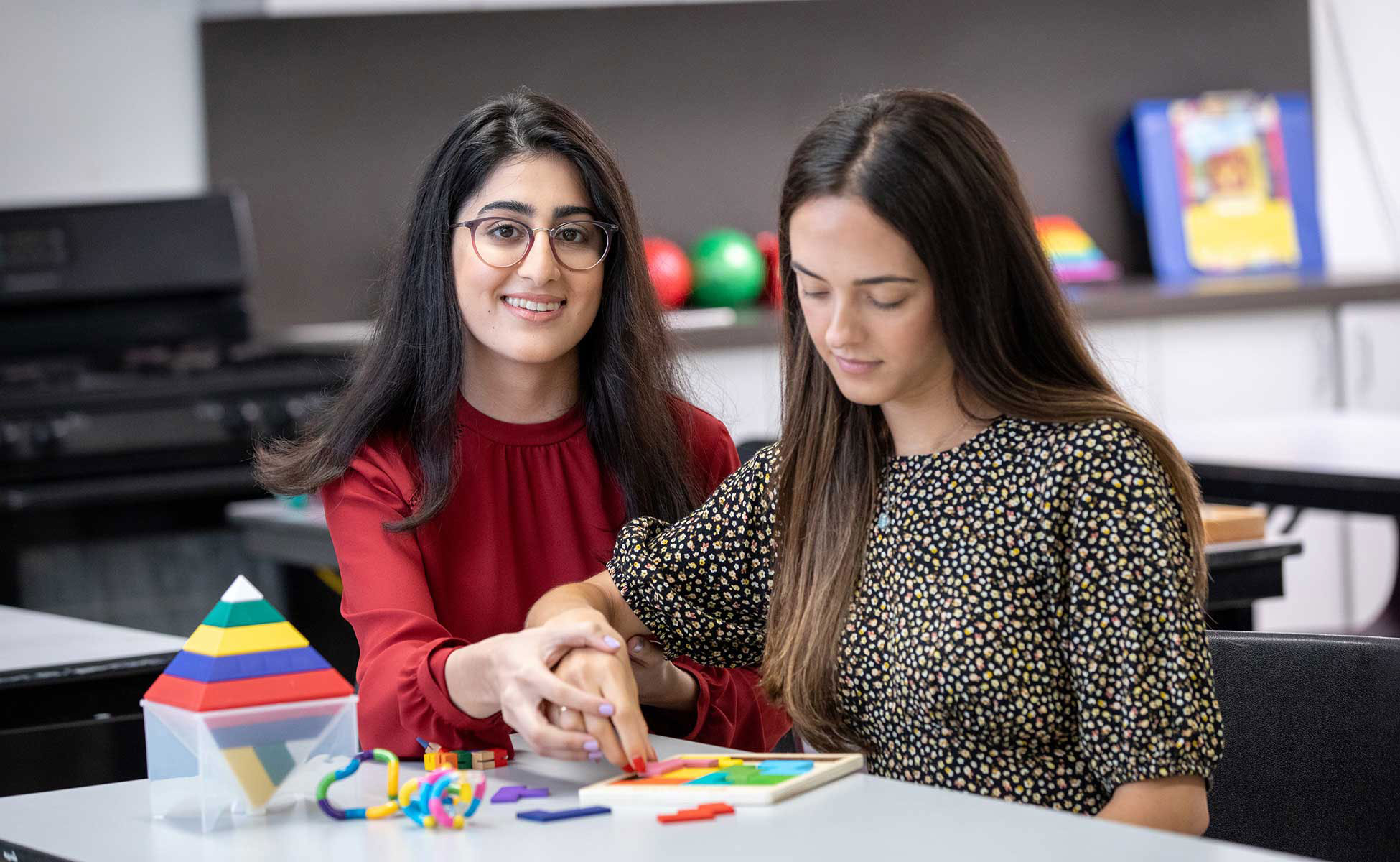Students enrolled in occupational therapy department programs are expected to have the abilities and skills necessary to complete the educational goals of the program. These standards define the behavioral, professional and psychological standards that a student must possess to participate in and complete a program of study in the occupational therapy department. The following is a list of the technical, or essential, skills required. If you need accommodations to meet these standards, please reach out to the Office of Student Disability Services.
- Motor Skills
- Possess sufficient motor function to elicit information from patients while carrying out evaluation procedures.
- Execute motor movements reasonably required to provide occupational therapy services. This includes the occupational strength to perform cardiopulmonary resuscitation, lift and transfer patients and to stand for long periods of time.
- Communication Skills
- Communicate in oral and written English effectively and appropriately.
- Engage in non-verbal communication effectively.
- Acquire information through classroom instruction, clinical experiences, independent learning and consultation.
- Complete reading assignments, search for and evaluate the literature required for learning within the academic and clinical environments.
- Intellectual/Conceptual, Integrative and Qualitative Skills
- Use computers for searching, recording, storing and retrieving information.
- Comprehend three-dimensional relationships and understand spatial relationships.
- Measure, calculate, reason, analyze, and synthesize information
- Effectively apply knowledge and skills gained from academic experiences in clinical situations.
- Sensory/Observational Skills
- Observe demonstrations and participate appropriately during laboratory and clinical experiences as required by the curriculum.
- Tolerate close physical contact with patients. Tolerate manipulation of his/her body by students and/or faculty for instructional purposes.
- Recognize emergency signals.
- Behavioral/ Social Skills and Professionalism
- Demonstrate attributes of empathy, integrity, concern for others, interpersonal skills, interest, and motivation (assessed during admissions and throughout OT education)
- Possess the emotional well-being required for use of his/her intellectual abilities.
- Exercise sound judgment.
- Demonstrate prompt completion of all responsibilities and the development of mature, sensitive and effective relationships.
- Adapt to ever-changing environments, display flexibility and learn to function in the face of uncertainties and stresses which are inherent in the education process, as well as the clinical problems of patients.
- Be assertive, delegate responsibilities appropriately and function as part of a treatment team.
- Possess the organizational skills necessary to meet deadlines and manage time.
- Respond appropriately to emergency situations.


